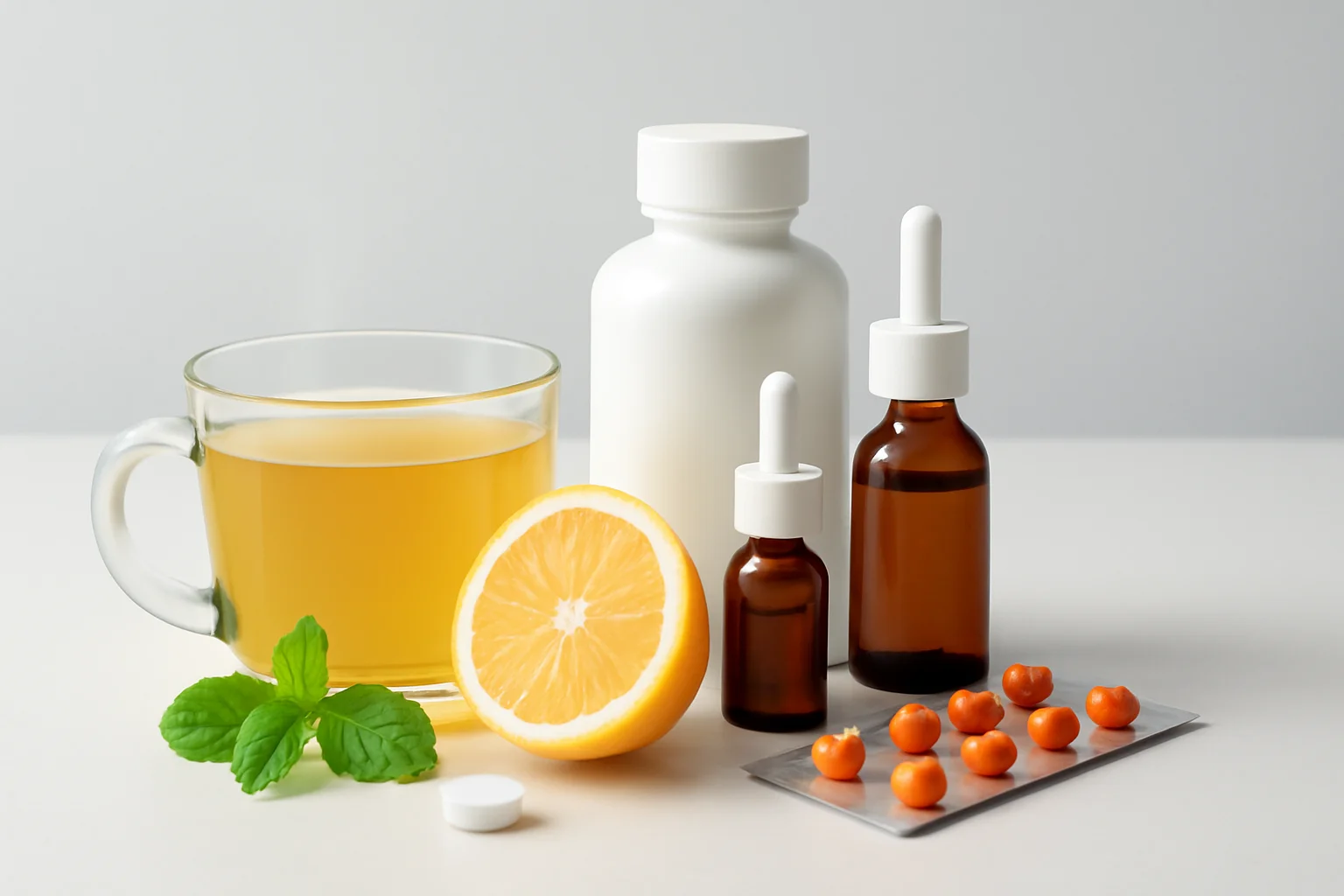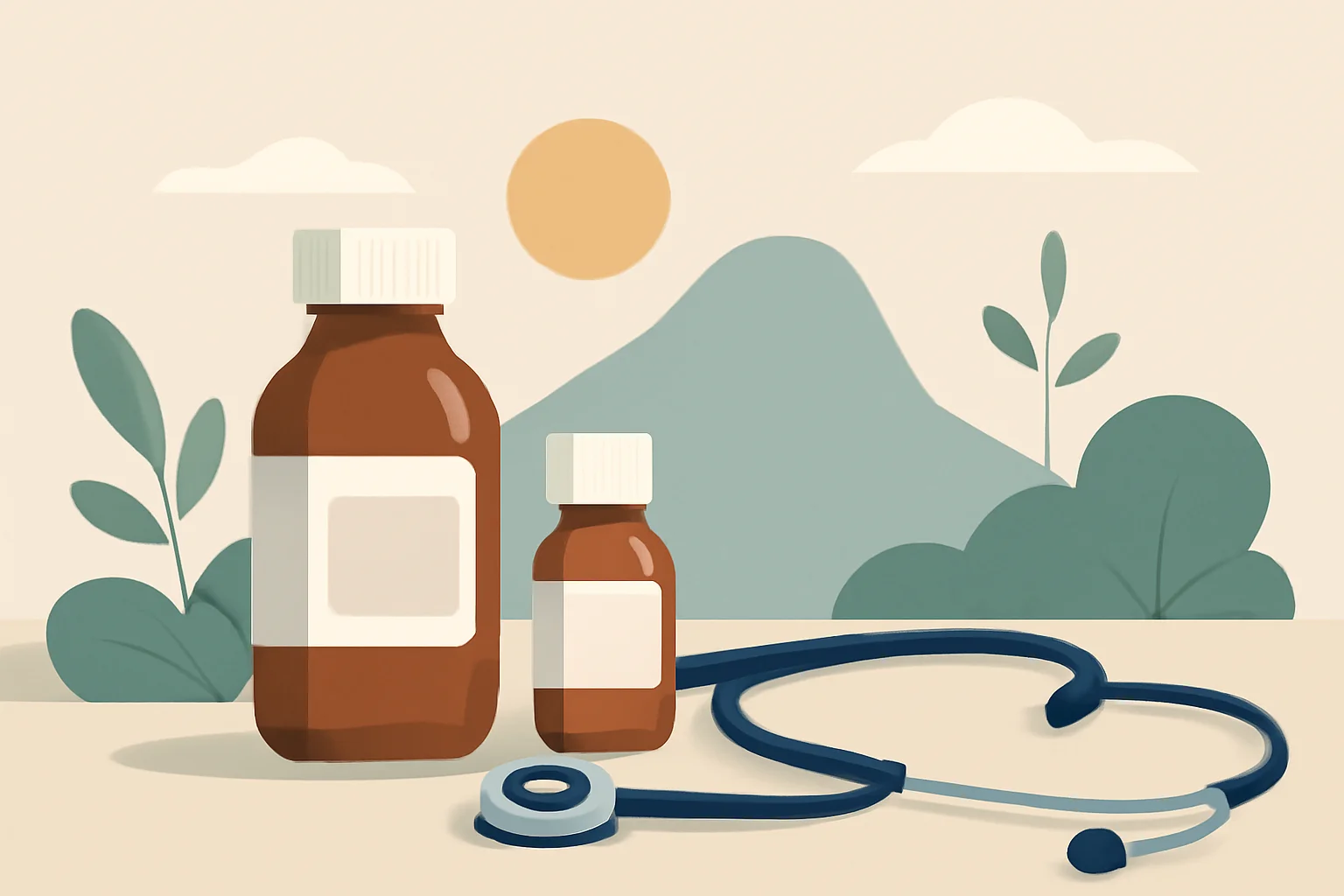
The best medications for treating and preventing colds
The common cold is an illness that many people are familiar with and that appears in almost everyone’s life at least once. Cold, damp weather, air-conditioned spaces, and crowded places can all contribute to the spread of viruses that cause the cold. Typical symptoms of the cold include a runny nose, sore throat, cough, headache, and fatigue. Although the cold usually resolves on its own, many suffer from the use of medications aimed at alleviating the symptoms.
A wide range of medications is available, from over-the-counter preparations to prescription drugs. Medications for treating the cold include pain relievers, antihistamines, cough suppressants, and decongestants. However, it is important to understand that not all medications are suitable for everyone, and in many cases, natural methods can also be effective. While some seek immediate solutions in the form of medications, others rely on natural alternatives to alleviate cold symptoms.
Below, we will take a closer look at the relationship between the cold and medications, as well as the available options to manage this everyday problem as effectively as possible.
What is the common cold and what causes it?
The common cold, also known as rhinopharyngitis, is a viral infection that attacks the respiratory tract. It is usually caused by rhinoviruses, but other viruses, such as coronaviruses and adenoviruses, can also contribute to the development of the illness. The viruses enter the body through the respiratory system, typically via breathing, such as through coughing or sneezing. The most common symptoms of the cold include nasal congestion, sneezing, sore throat, cough, and fatigue.
The cold typically has a mild course, and symptoms usually resolve on their own within 7-10 days. However, the symptoms of the cold can vary in severity and form among individuals, and it can be more severe in people with weakened immune systems, such as children and the elderly.
Risk factors for the common cold include cold weather, air-conditioned spaces, crowded places, stress, and low intake of vitamins and minerals. The most effective way to prevent the cold is to follow hygiene rules, such as frequent handwashing, avoiding close contact with sick individuals, and maintaining a healthy lifestyle.
When the cold is unavoidable, many seek medications to alleviate the symptoms. However, it is important to note that the cold cannot be cured, and medications are generally only intended to reduce symptoms, not to eliminate the cause of the illness.
Medications to alleviate cold symptoms
A variety of medications are available at pharmacies to treat cold symptoms. These preparations contain different active ingredients aimed at alleviating symptoms such as pain, fever, nasal congestion, and cough. Below, we present the most common groups of medications used to treat cold symptoms.
The first group is pain relievers, such as paracetamol and ibuprofen. These medications can reduce fever and alleviate headaches or sore throats. Pain relievers are generally well tolerated, but it is important to consider the recommended dosage and potential side effects.
The next group consists of antihistamines, which can help reduce runny nose and sneezing. These medications block the effects of histamine, which is released during a cold. Many antihistamines are available over the counter, but some may cause drowsiness, so it is advisable to pay attention to the usage instructions.
Cough suppressants are used to relieve coughing and can be divided into two main types: preparations for dry cough and syrups for wet cough. The mechanisms of action of cough suppressants vary, so it is important to know which of the available products is most appropriate based on the symptoms.
Finally, decongestants can help reduce nasal congestion by constricting the nasal mucosa. These preparations are often found in combined cold medications as well. It is important to use decongestants only for the recommended duration, as long-term use can lead to dependency.
While medications can effectively alleviate cold symptoms, it is important to understand that these are only temporary solutions. Medications do not cure the cold, and for the best results, it is advisable to combine them with natural methods, such as rest, adequate fluid intake, and a vitamin-rich diet.
Natural remedies for treating the common cold
In addition to medications, there are several natural remedies available to alleviate cold symptoms. Many people prefer natural methods as they often come with fewer side effects and can contribute to strengthening the body’s immune system.
One of the most well-known natural methods is the combination of honey and lemon, which is not only tasty but also beneficial. Honey has antibacterial properties and can help soothe a sore throat, while lemon is rich in vitamin C, which supports the immune system.
Ginger tea is also a popular natural remedy. Ginger has anti-inflammatory properties and can help relieve cough and sore throat. Consuming ginger in warm form can be particularly beneficial during a cold.
Garlic is another powerful natural remedy that many use to strengthen the immune system. Due to its antibacterial and antiviral properties, garlic can help prevent the cold and alleviate symptoms.
Steam inhalation can also be an effective method for relieving nasal congestion. Herbs such as chamomile or peppermint added to hot water can help clear the airways and alleviate cold symptoms.
Maintaining proper rest and hydration is also crucial in treating the cold. The body needs energy to fight off viruses, so it is important to get enough sleep and drink fluids. Warm soups and teas not only hydrate but also provide nutritional benefits that can aid in faster recovery.
While natural methods can often be effective, it is advisable to consult a doctor if symptoms worsen or do not improve.
Conclusion: Common cold and medication
The common cold is a frequent but generally mild illness caused by viruses. To manage symptoms, many turn to medications containing various active ingredients to alleviate pain, nasal congestion, and cough. However, it is important to understand that medications only relieve symptoms and do not cure the cold.
Natural remedies such as honey, ginger, and garlic can also effectively support recovery and are often gentler on the body. Maintaining proper rest and hydration is also essential for a speedy recovery.
However, it is important to emphasize that when treating the common cold, individual needs and health conditions must be taken into account. If symptoms worsen or do not improve, it is essential to consult a doctor.
**Warning:** This article does not constitute medical advice. For any health issues, please consult a physician.

